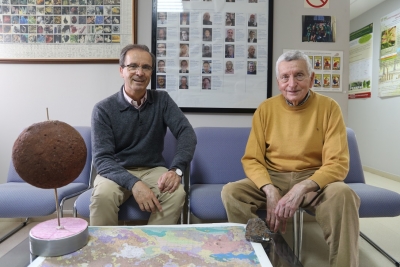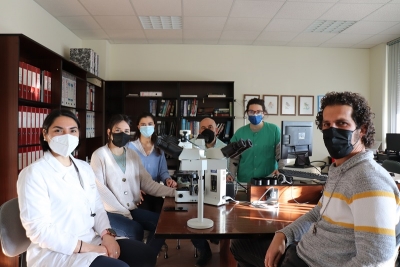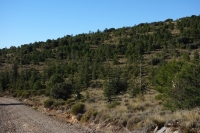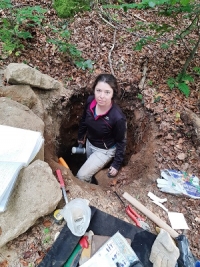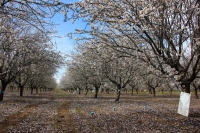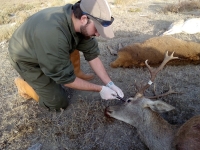Expanded knowledge of a mineral that helps decipher past climates
Escrito por UCC+iA review published in Reviews of Geophysics, featuring participation by the UCO, containsmuch of the knowledge generated about the magnetic and color properties of a mineral that can help to decipher the past climate of Earth and Mars: hematite.
Researchers identify the role of three key molecules in the pig immune system against one of the viruses most dangerous to the swine industry
Escrito por UCC+iA study on Porcine Reproductive and Respiratory Syndrome virus analyzes the role of what are known as Viral Transcription Factors, molecules responsible for the differentiation of immune system cells, and concludes that three of these molecules are expressed with greater intensity in the most virulent strains of the pathogen
A study proposes the Atlas cedar as an alternative to mitigate the effects of climate change in forests on the Iberian Peninsula
Escrito por UCC+iA study carried out by an international team and published in a special issue of the journal Forests on adaptive forestry analyzed the usefulness of the Atlas cedar, a North African species, in mitigating the effects of climate change in the forest systems of the Iberian Peninsula's Mediterranean Arc
Dead or alive? Identifying factors that predispose trees to death after windstorms in Central European forests
Escrito por UCC+iSoil, growth pattern and species heterogeneity in the forest determine tree survival after windstorms, according to a study by the University of Cordoba and The Silva Tarouca Research Institute in the Czech Republic.
Severe irrigation restrictions due to drought would threaten almond plantations
Escrito por UCC+iResearchers at the Department of Agronomy of the UCO, IAS-CSIC and IFAPA have evaluated the physiological and productive responses to reduced or suspended irrigation during a single season on an irrigated almond plot, demonstrating that restrictive measures could threaten the plantations' survival
The first map showing the risk of exposure to the Crimean-Congo virus in deer populations in Spain
Escrito por UCC+iA model based on climatic determinants and on the study of antibodies in red deer (Cervuselaphus) populations makes it possible to map, throughout Spain, the circulation of the virus that causes Crimean-Congo hemorrhagic fever, which could facilitate the establishment of prevention programs


